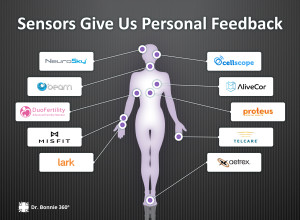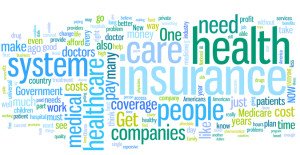The “Why HIPAA Won’t Save You – Protecting Data Privacy” panel discusses how medical privacy is a concern for the future of big data. Marc Monseau and three other experts in the health and data community will be discussing this pressing issue.
Imagine a young woman and she is going on her usual run with her dog. She has her phone monitoring the distance she is running and giving her an estimate of the calories she is burning. This means she is less likely to suffer from heart disease, and since her health insurance company has a deal with the company who made the app to get all the data, they lower her insurance premium by a few dollars. Sounds nice, but wait, there is more.
“This panel came about last year when at SXSW,” Monseau said, “with all the conversations about privacy, a friend of mine who is on the panel started taking about protecting your private data.”
Imagine that a woman changes her relationship status on Facebook to “In a Relationship.” The insurance company could raise her premiums because they know she isn’t on the pill and has a higher risk of pregnancy. It keeps going, she uses a coupon app to get deals on drinks at bars. From the time of her purchases to the time her GPS tracks her in her car she couldn’t have had enough time to get sober, so the police signal her out, and since they have reasonable cause, they use her car’s electronic systems to shut it off and now she can’t drive. The problem was she used the app for some friends and didn’t drink. Now her insurance has gone up due to risky behavior of drinking and driving, not to mention the risk of liver disease due to her frequent visits to this location.
Another young man’s risk of heart disease is higher and so his doctor keeps a close eye on notable risk factors. The doctor knows this because he has the data of the food recipe apps he used to guide his cooking and it’s not healthy. Now his insurance goes up to help pay for his impending heart attack.
“There needed to be a broader conversation in the health tech community, because there’s a vast amount of data that is being collected,” Monseau said.
There is a flip side to all of this. Since we have gathered data from every corner of everyone’s digital lives, researchers now know certain trends in health conditions. Doctors get this information, they know what to look for, and helps people correct their behavior before someone you intakes a lot of surge get diabetes. The trends in this data help researchers understand some of the contributing factors to a terrible disease. This directly leads to the invention of a treatment regimen that reduces the mortality rate of people infected. Community leaders now know how better to feed children at school, and can target public works projects for the sections of the populations where it will do the most good for public health. This improves the welfare and life expectancy of tens of thousands of people. Doctors and hospitals are stocked with the medicines and supplies they need, far more efficiently reducing the cost of healthcare and increasing its effectiveness.
“A lot of the data that exists about health may not necessarily be covered by the HIPAA compliance directives,” Monseau said.
Both of these scenarios are possible by monitoring data that does not fall under the protection of the HIPAA laws. Unfortunately there are so many different types of data that once aggregated and crosschecked it can be used for various reasons and will be hard to make rules for.
“There is a lack of communality to insure the privacy of all this health data,” Monseau said.
Despite the difficulties, there are obvious benefits.
“The potential of big data is to help give a bigger picture of how people live their lives,” Monseau said. “This could have new opportunities for treatments, new ways of tracing, and dealing with disease.”
Understanding the patterns of society will give health care providers a better ability to make more accurate insights to improve people’s health.
“For instance, researchers found that there is a higher occurrence of ALS among American service members,” Monseau said.
“As we start to leverage this big data and collect it through other means,” Monseau said, “we might be able to find other trends and identify patterns that we don’t have at the moment. But at what expense?”
How we solve these legal problems, protect people’s privacy, and accurately improve health care is going to be one of the largest challenges of the digital age.



